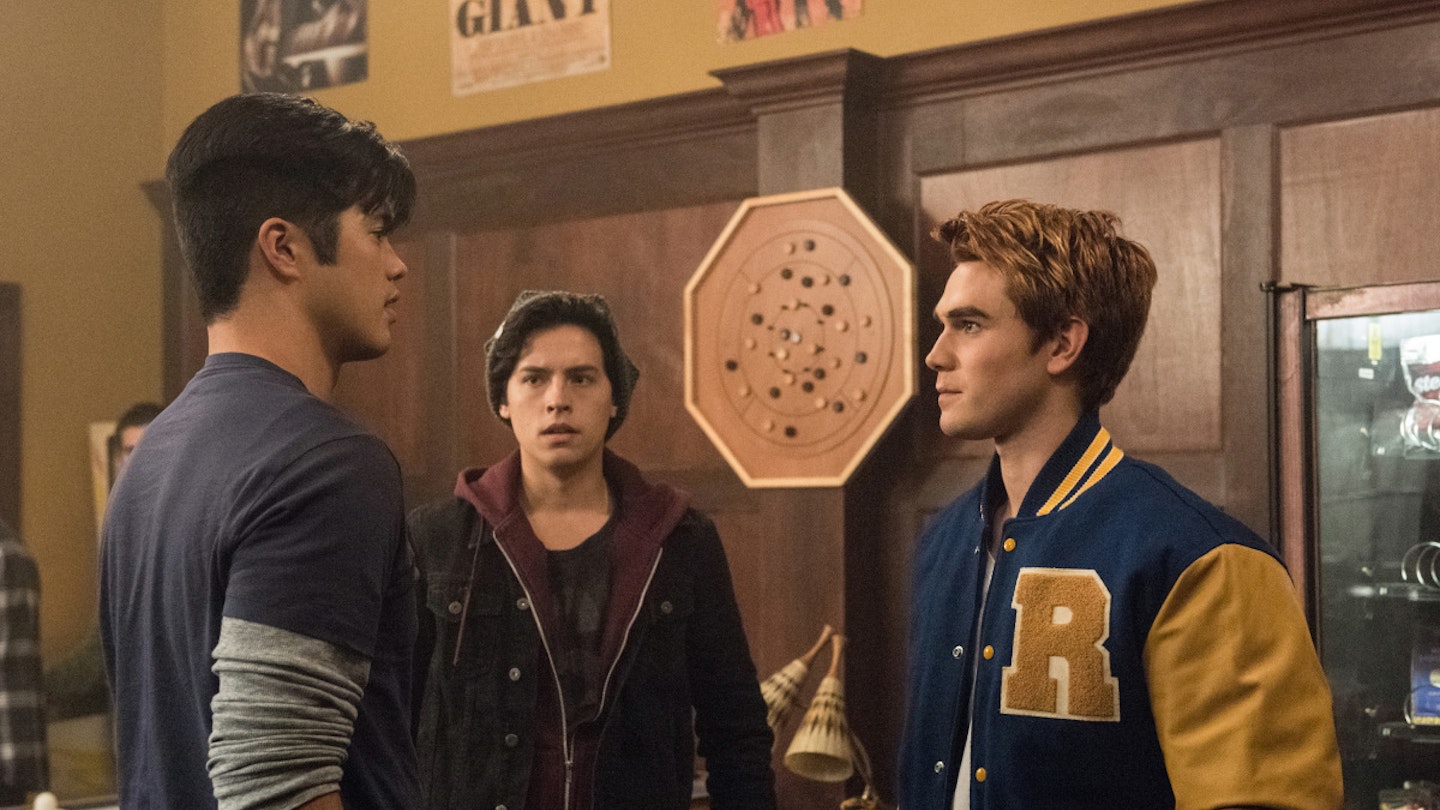When Archie Andrews and the rest of the comic book gang make their live action debut on Riverdale, viewers will meet characters that are a hybrid of the ones that they’ve known and loved for decades, with a bit of an (here comes that word) edge, taking them in some unexpected directions. Executive producer/writer Roberto Aguirre-Sarcasa, who has spent years writing Archie comic books, offers up an inside look at what fans can expect.
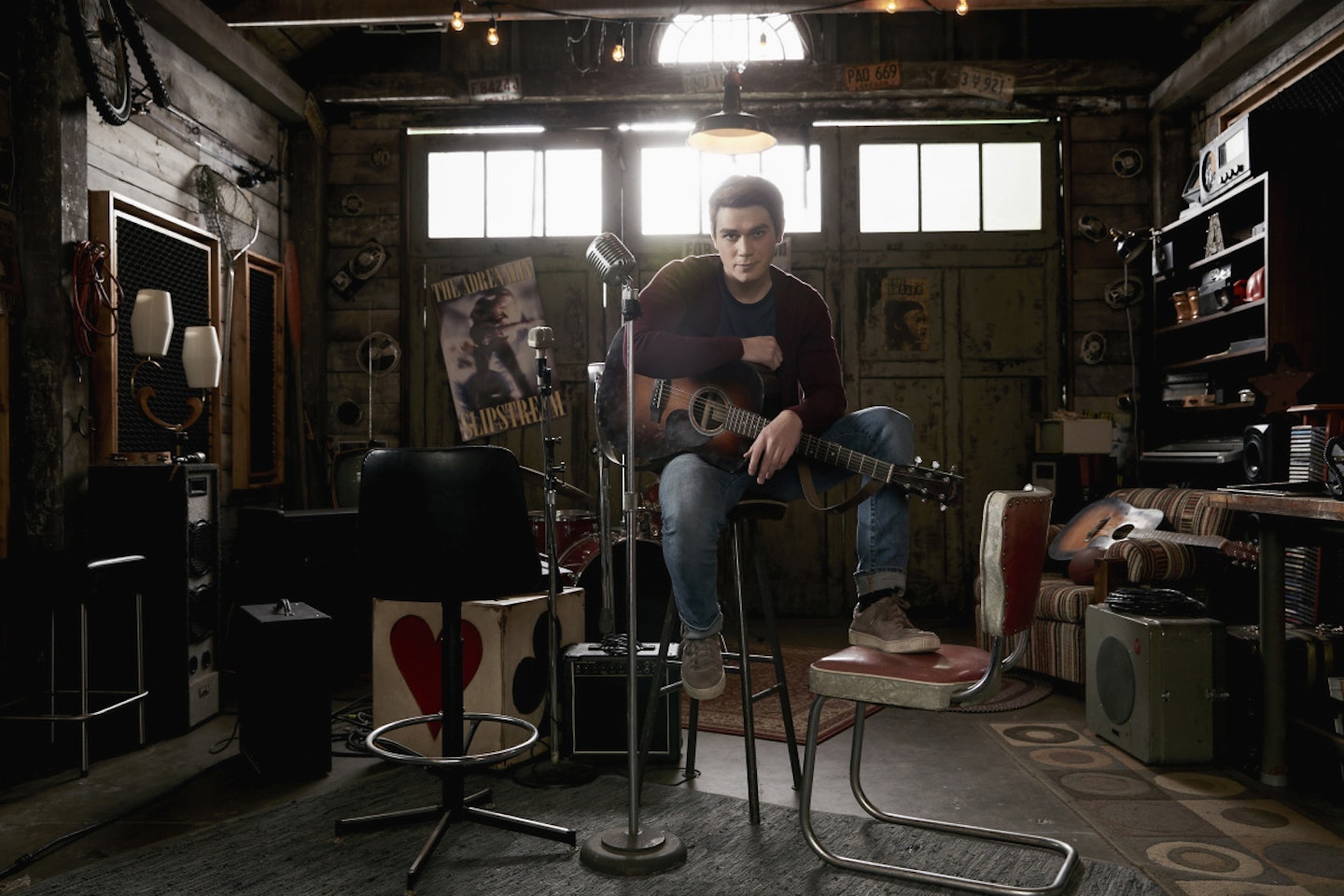
How would you describe your path to Riverdale?
It started from a lifelong love of the characters when I was a kid. The earliest stuff I remember reading were those Double Digests; I always say the Double Digests that you used to get at the supermarket. I remember vividly, going to camp and I was so upset, because I didn't want to go to sleepaway camp, but my Mom stopped at the 7-11 — this was before comic book stores existed — and she was, like, "Go buy a Slurpee and some Archie comics." I was, like, “Okay, okay, I can face this now." So I've always loved and read the characters.
A lot of people ask me why do you love Archie so much. For me it was kind of an aspirational, almost wish fulfillment thing. I really wanted to be friends with Archie and his friends. I wanted to go to Riverdale High. I thought, “Oh, that's kind of a place where everyone's nice and everyone's having a good time and they always go to the chocolate shop after school or they go to the movie theatre or the drive-in and stuff.” I think that's where it started.
And how did that passion lead you to writing the comics and now, of course, the TV show?
I spent maybe ten years writing Marvel Comics, but I always wanted to write an Archie comic. So I stalked the CEO and publisher at New York Comic-Con maybe four or five years ago, and I said I need to write an Archie comic book. It’s a major bucket list thing. And then we started working from there. I'd done a bunch of TV stuff, I worked on Glee for three years, Big Love for three years, and he said, “Would you ever be interested in doing a live-action Archie?” I was, like, “Yeah, that would be a dream come true.” So we started trying to make that happen. It's been a long journey, I think we've been working on this for three or four years.
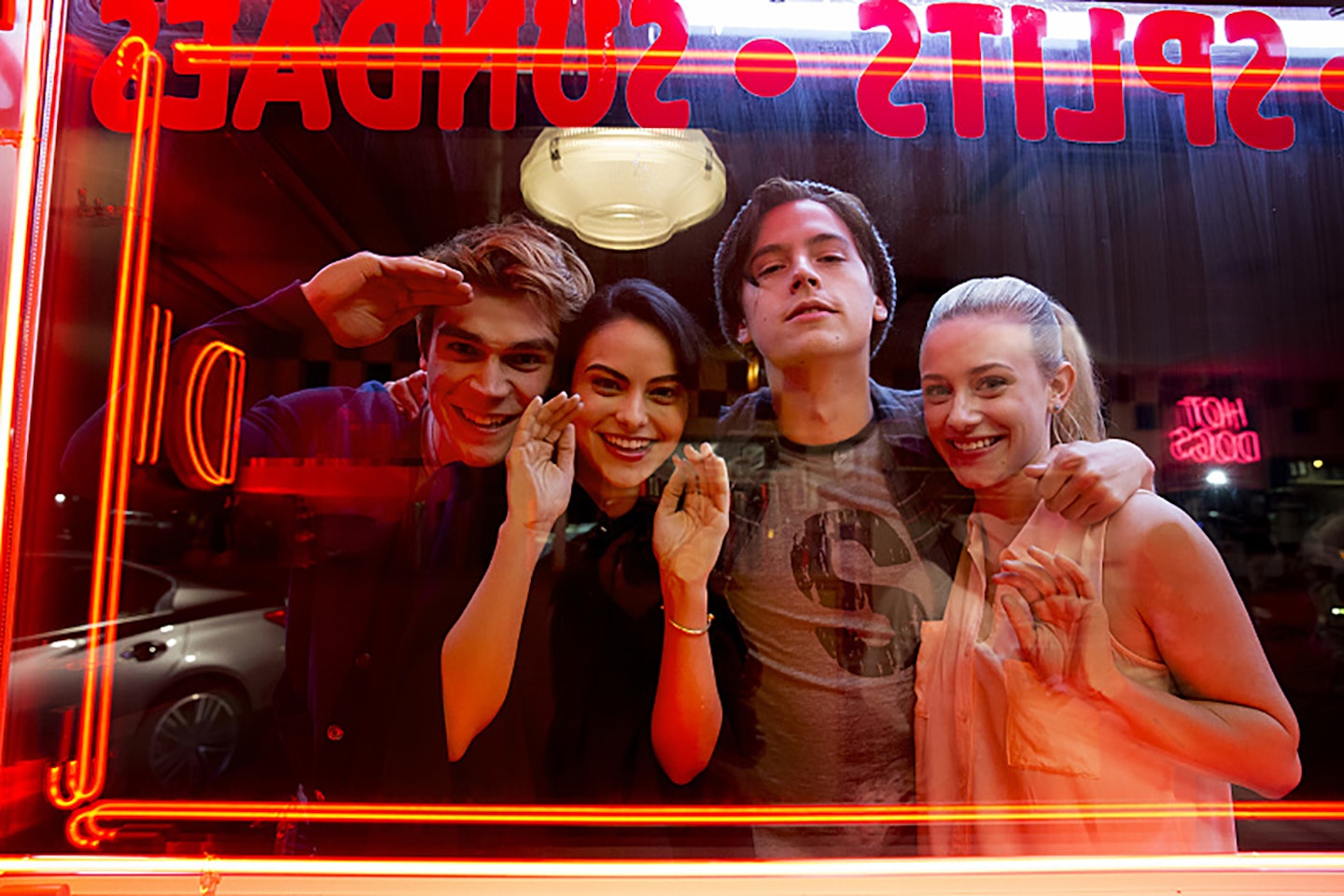
Looking at the show, it seems you were pretty hellbent on making this an inclusive cast.
My background is my Mom and Dad were from Central America, they were born in Nicaragua. Greg Berlanti is an uber-producer; he has about six or seven shows on the air. There was not a question with either of us or anyone on the show, including the Archie folks, that if we're going to do a show, that it be set in the real world. It has to reflect the real world and the real world is not one-hundred percent white. Do you know what I mean? So that was a big priority. We have Camilla Mendes as Veronica, who is a beautiful and fiery Latina and amazing; and we have Josie and the Pussycats, which is an all African-American female girl band. Some people say they're like Destiny's Child, I think they're like the Dream Girls. KJ Apa, who plays Archie, is from New Zealand and is half Samoan, I believe, and it's just how the world is. And Kevin Keller, played by Casey Colt, for instance, is also a big character in the comic books and he was always going to be a big part of the pilot to do an inclusive world, exactly as you said.
So to that point, when you were doing casting did you kind of say, “I want Josie And Ahe Pussycats to consist of black girls” or was it open casting and you figured it out from there?
At a certain point we were open to any kind of diversity. In my first meeting with Greg, when I first pitched him a show on Archie, I did say, "And imagine Josie And The Pussycats as Destiny's Child," so that was an early on idea. But for Veronica, open diversity; anyone could audition and everyone did. And Camila fought hard to win that part, and she won it and she's wonderful in it.
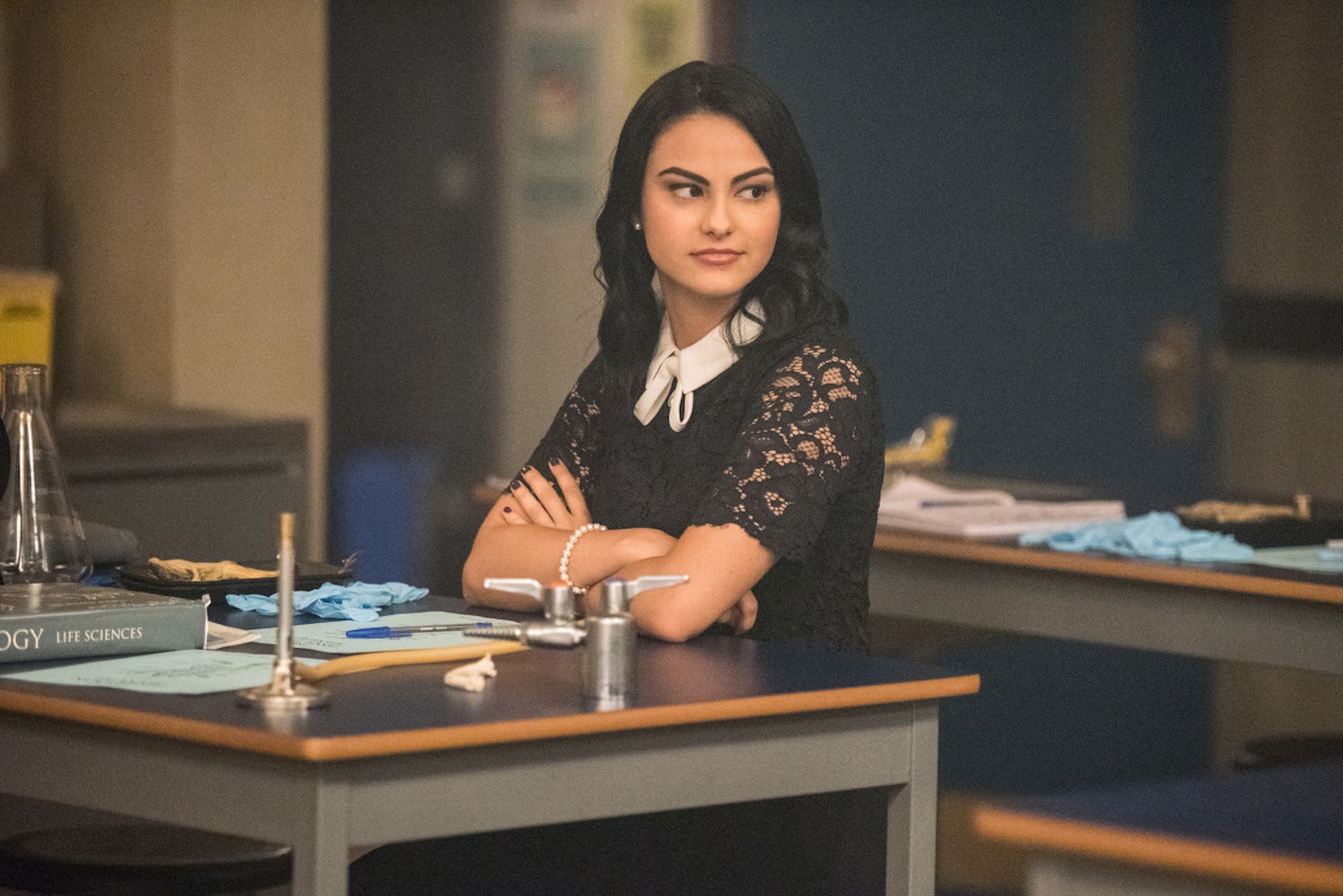
Why call it Riverdale rather than Archie?
That was decided early on. By calling it Riverdale, we could bring in all the different characters and all the different points of view. For instance, Josie And The Pussycats, who are huge Archie characters, they are in Riverdale. We thought that there needed to be a little bit of an engine more than just a coming of age story. Now, I love coming of age stories, and this at its heart is a coming of age story, but we also kind of thought it would be nice to add some kind of noir mystery element so that we could end on cliffhangers and things like that. And, you know, on some level every coming of age story is really a loss of innocence story. It felt like telling a story where all the kids kind of grew up and saw the world for what it was, or saw their parents for what they were, could be a really cool way to do this coming of age story.
What do you think is going to attract audiences to this show?
People's affection for these characters. In working with Archie over the last seven years, and being an Archie fan all my life, every time I bring up Archie or Betty and Veronica, most everyone has some memory of it or they know who I'm talking about. Because of that kind of familiarity, I think people will invest in these characters and I think people will be excited to see them in a new medium. That fan base that is really, really passionate, those will be the first people who turn to it.
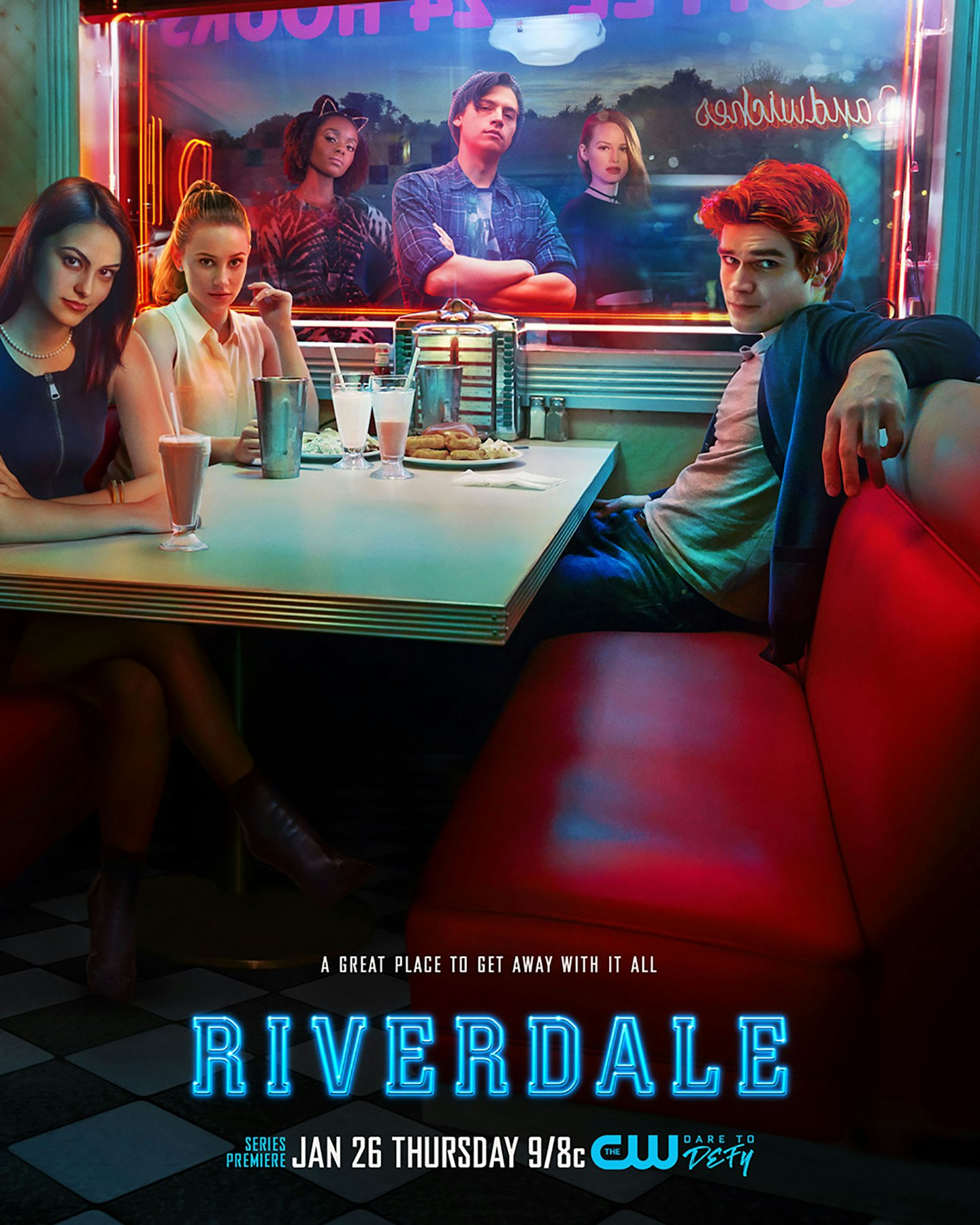
If this is going to be dramatic; are you still going to keep the element of comedy from the books?
A hundred percent. It's more drama, but there are funny lines, funny characters. Like I said, Josie And The Pussycats, they're in there so we even have some music in it. The show is not just dark, it really is a mix of the two. I would never do a show that was just dark and nihilistic. Who wants to see Archie as the Dark Knight Returns? But I think that if we do a show that was like Archie, or Saved By the Bell, people would be, like, “We've seen that before,” so it's really that tension between light and dark.
